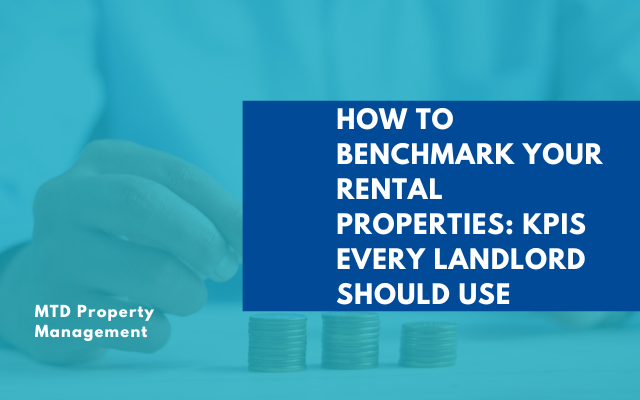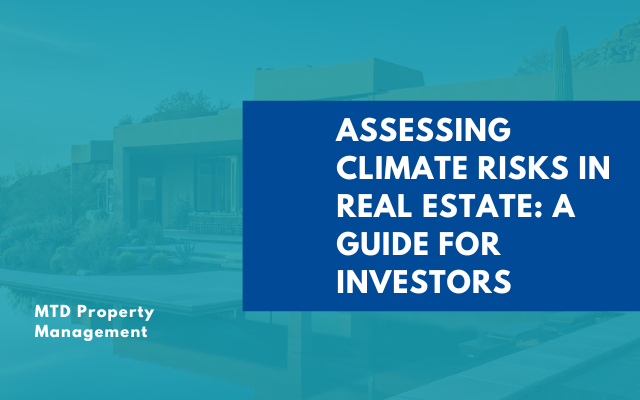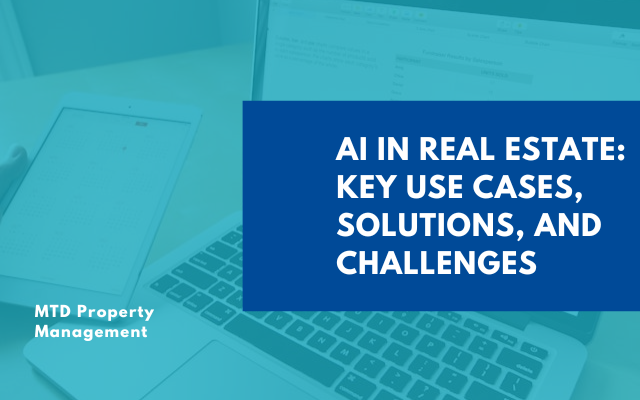How to Benchmark Your Rental Properties: KPIs Every Landlord Should Use

Key Takeaways:
- Benchmarking rental properties with the right KPIs—such as occupancy rate, cash flow, and rent collection efficiency—gives landlords clear insight into portfolio performance and profitability.
- Chicago landlords benefit from tracking metrics tailored to the city’s diverse rental market, helping them make informed decisions on pricing, maintenance, resident retention, and long-term investment strategy.
- Using data-driven insights and professional support
from property management experts like MTD helps landlords reduce costs, improve efficiency, and enhance resident satisfaction across their portfolio.
Have you ever wondered if your rental properties are truly performing as well as they could? Many Chicago landlords manage to keep their units occupied and rent payments steady, yet still struggle to measure how well their investments are actually doing. Benchmarking gives you that missing clarity.
It helps you compare performance, track progress, and make smarter decisions about where to improve or expand. From cash flow to resident satisfaction, understanding the right key performance indicators (KPIs) can transform how you manage and grow your portfolio.
MTD Property
Management emphasizes that using data-backed insights is the key to long-term rental success.
Essential KPIs to Measure and Grow Your Rental Portfolio
Tracking the right performance metrics helps landlords make smarter decisions, improve profitability, and ensure resident satisfaction. These eight KPIs provide a clear roadmap for benchmarking properties effectively in Chicago’s unique rental market:
1. Occupancy Rate
Keeping track of how often your rental units are occupied gives you a clear picture of your property’s appeal and market demand. In Chicago, where neighborhoods vary widely in popularity, maintaining high occupancy ensures your units remain profitable and reduces the stress of extended vacancies.
A strong occupancy rate also reflects how well your management practices are working. Efficient
property
marketing, quick responses to inquiries, and a smooth move-in process all contribute to keeping residents satisfied and units filled consistently, making this KPI essential for long-term rental success.

2. Rent Collection Efficiency
Monitoring how consistently residents pay rent on time is crucial for financial stability. In Chicago, with its mix of residential and investment areas, ensuring timely payments helps you plan for expenses, maintain cash flow, and avoid unnecessary financial stress.
This KPI also highlights the effectiveness of your payment systems and communication. Clear reminders, convenient payment options, and prompt follow-ups with residents help reduce late payments, making rent collection smoother while keeping your relationship with residents positive and professional.
3. Cash Flow
Tracking cash flow allows you to see if your rental income covers all property-related expenses. In Chicago, with fluctuating property taxes and maintenance costs, this KPI helps landlords identify which units generate surplus income and which might need adjustments.
Positive cash flow ensures your investment remains sustainable over time. It also gives you the flexibility to reinvest in improvements, cover unexpected repairs, and maintain the property at a high standard, keeping residents happy and your rental portfolio financially healthy.

4. Rental Yield
Calculating rental yield helps landlords measure the profitability of each property. In Chicago, evaluating both gross and net yield provides a realistic view of returns after factoring in expenses such as taxes, insurance, and maintenance, making it easier to compare properties.
This KPI informs strategic decisions, such as whether to adjust rent or reinvest in upgrades. By understanding which properties deliver the best returns, landlords can focus efforts on maximizing profitability while ensuring residents continue to enjoy quality, well-maintained homes.
5. Resident Retention
Tracking how long residents stay in your units helps gauge satisfaction and overall property appeal. In Chicago, where moving costs and rental options vary by neighborhood, retaining residents reduces vacancy periods and the expenses associated with finding new ones.
High retention also strengthens your property’s reputation. When residents feel valued, experience responsive management, and enjoy well-maintained homes, they are more likely to renew leases, creating steady income and a more stable, predictable rental business.
6. Maintenance Spend
Monitoring repair and upkeep costs is essential for protecting both your investment and resident satisfaction. In Chicago, adhering to local housing codes while keeping expenses manageable ensures your properties remain safe, functional, and compliant.
Keeping maintenance costs in check also allows for better budgeting and financial planning. Identifying recurring issues or inefficient spending helps landlords make strategic decisions about upgrades or preventative measures, ultimately preserving property value and maintaining a positive experience for residents.
7. Property Appreciation
Observing how your property’s value increases over time provides insights into long-term profitability. In Chicago, neighborhood trends and development projects can significantly influence appreciation, guiding landlords on which areas to prioritize for future investments.
Understanding appreciation patterns also helps landlords plan for
refinancing
your mortgage, selling, or expanding their portfolios. By tracking these changes, you can make informed decisions that maximize returns while continuing to offer residents quality, well-located homes that meet their expectations.

8. Operating Expense Ratio
Calculating the proportion of operating expenses to rental income highlights management efficiency. In Chicago, this KPI considers taxes, insurance, utilities, and maintenance costs, allowing landlords to assess whether their property is financially performing as expected.
A lower ratio indicates that income is being maximized relative to expenses, while a higher ratio signals the need for adjustments. Monitoring this regularly helps landlords optimize spending, maintain profitability, and ensure each property delivers the best possible financial performance.
Bottom Line
Understanding key performance indicators is essential for any landlord looking to grow and protect their rental portfolio. MTD Property Management in Chicago can help you interpret these metrics, identify opportunities for improvement, and implement strategies that enhance profitability and resident satisfaction.
Their expertise ensures your properties are managed efficiently while aligning with local regulations. Reach out to
MTD Property
Management to explore tailored solutions, discuss your options, and determine the best approach to optimize your investment and achieve long-term rental success.









